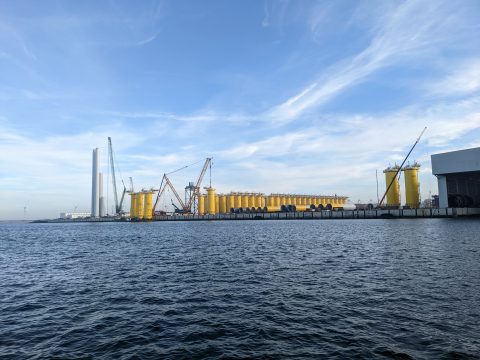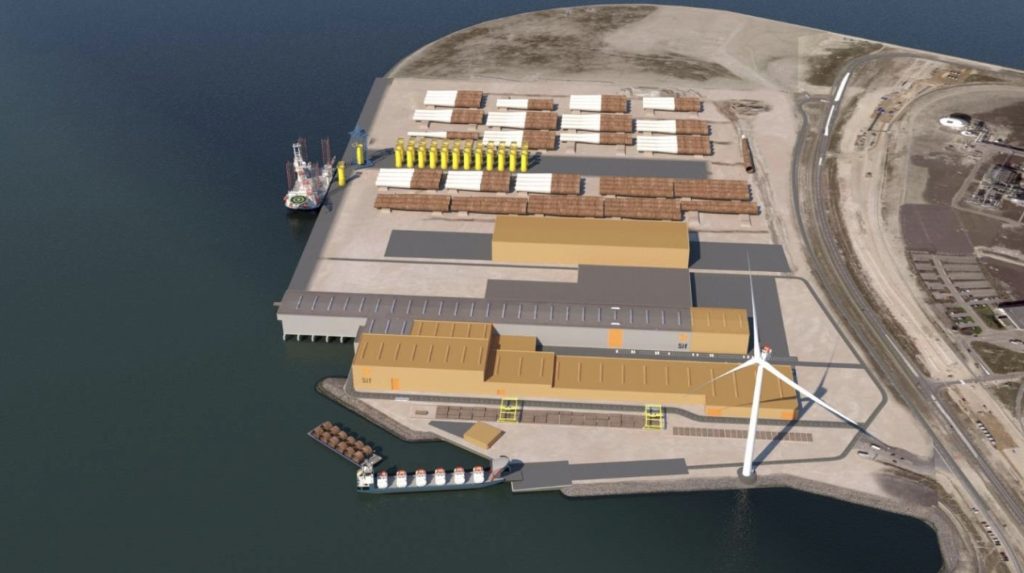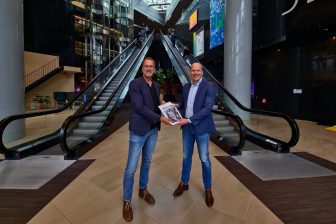
Sif to build world’s largest monopile foundation manufacturing plant
Sif Holding announced its €328 million Final Investment Decision to build the world’s largest monopile foundation manufacturing plant in Rotterdam, the Netherlands. Construction is expected to start in April 2023.
The plant will be built at the 62-hectare Maasvlakte 2 site in Rotterdam, the Netherlands, as an extension of the existing Sif facilities. Construction is set to start in April 2023, while the first manufacturing operations are scheduled to start in the second half of 2024. The facility will have a roll-on-roll-off quay and our 650-metre deep sea quayside with direct sea access, for easy transportation of monopiles to sites such as Hollandse Kust (West).
The new site will allow Sif to manufacture monopile foundations with diameters ranging between 9 and 11.5 metres, and potentially further expand the diameter of monopile foundations down the line. Indeed, according to Sif, most wind farms will require monopile foundations with diameters ranging between 9 – 11.5 metres from 2025 onwards. The company estimates that based on the reference monopile of 2,500 metric tons, an average output of 200 XXXL monopile foundations a year can be realised.
The Rotterdam site set-up will allow for the execution of the entire manufacturing process including plate preparations, rolling, welding, assembly, coating and logistics, while Sif’s Roermond plant will fully focus on the manufacturing of monopile foundation top sections of up to 9 metres in diameter, primary steel for transition pieces and pin-piles and jacket legs. The top sections manufactured in the Roermond facility will be combined with the bottom sections in Rotterdam.

Sustainability
In line with Dutch regulation, a Wet algemene bepalingen omgevingsrecht (Wabo); vergunning voor de activiteit milieu permit is in place, putting a focus on the reduction of nitrogen and CO2 emissions.
Nitrogen emission and deposition levels will be lower compared to today’s operational levels thanks to higher electrification of production and transport equipment and processes. Sif will also follow the requirements of that Nature Conservation Act permit (“Nature Permit”), relating to nitrogen deposition in protected areas.
Additionally, Sif’s CO2 footprint per kiloton produced will decrease, as the new factory will consume less gas per kiloton and will only use green electricity, generated by the on-site wind turbine.
You just read one of our premium articles free of charge
Register now to keep reading premium articles.




